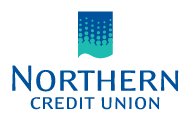In the race to retirement, you’re on the home stretch, so now’s not the time to make assumptions. It’s not too late to start saving in your 40s and 50s.
Take control of your financial future by understanding your current financial situation and adapting when life doesn’t go as planned (for better or worse). In Canada, you can improve your chances of retiring when and how you want by following this retirement planning guide.
Debt
In most cases, minimizing loans as soon as possible is the fastest, easiest way to the winner’s circle. When determining whether to pay down debt consider what kind it is and the interest rate you’re being charged, as well as tax implications and if there are any costs to pay off a loan completely.
Credit cards are the most common type of debt. While there are many benefits to using them, you should try to pay off the balance and reduce the number of cards you have.
Paying your mortgage down builds equity, but how quickly you pay it down partly depends on your other debt. If the mortgage is for a rental property you can write it off, so try maintaining more debt on any rentals than you do in the house you live in.
Investments
Knowing how much you need to retire is important; as is having access to your money when you need it, with minimal tax implications.
Investing in Registered Retirement Savings Plans (RRSPs) allows you to save while maximizing your tax refund (or limiting how much you owe). RRSPs aren’t always the best option, especially if you’re not too far from retirement. Pensions, for example, are a great way to build tax-sheltered funds, but not every employer offers one and they’re hard to access until you actually retire. If your partner has a pension and you don’t, or in similar situations, Spousal RRSPs can provide additional tax breaks.
Retirement Income and Expenses
Paying down debt and maximizing your investments only works if you can afford to do it. Determine your cash flow by comparing the income to the expenses you expect from now until retirement.
For income, you’ll want to factor in your salary or wages, including how long you plan on working, if you’re planning a career change, etc. Income from rental properties should also be included.
Expenses are a little trickier. Paying off debt is a kind of expense, and we’ve touched on the importance of doing so above. Other expenses could include utilities, insurance, post-secondary education (you or your kids) or rent (if you don’t own), as well as groceries, entertainment and travel.
Use our retirement income calculator to help you assess your finances.
Monitor Investments and Adapt
You never know what's to come, so it's best to expect the unexpected. With your retirement finish line in sight, it’s reinforced the importance of making some extra pit stops to make sure things go smoothly.
Monitor how you’re doing with debt and investments regularly. Your Planner/Advisor is like your navigator – communicate often and meet at least once a year to get retirement savings advice.
With the right retirement plan, you’ll be able to enjoy the ride to the finish.


